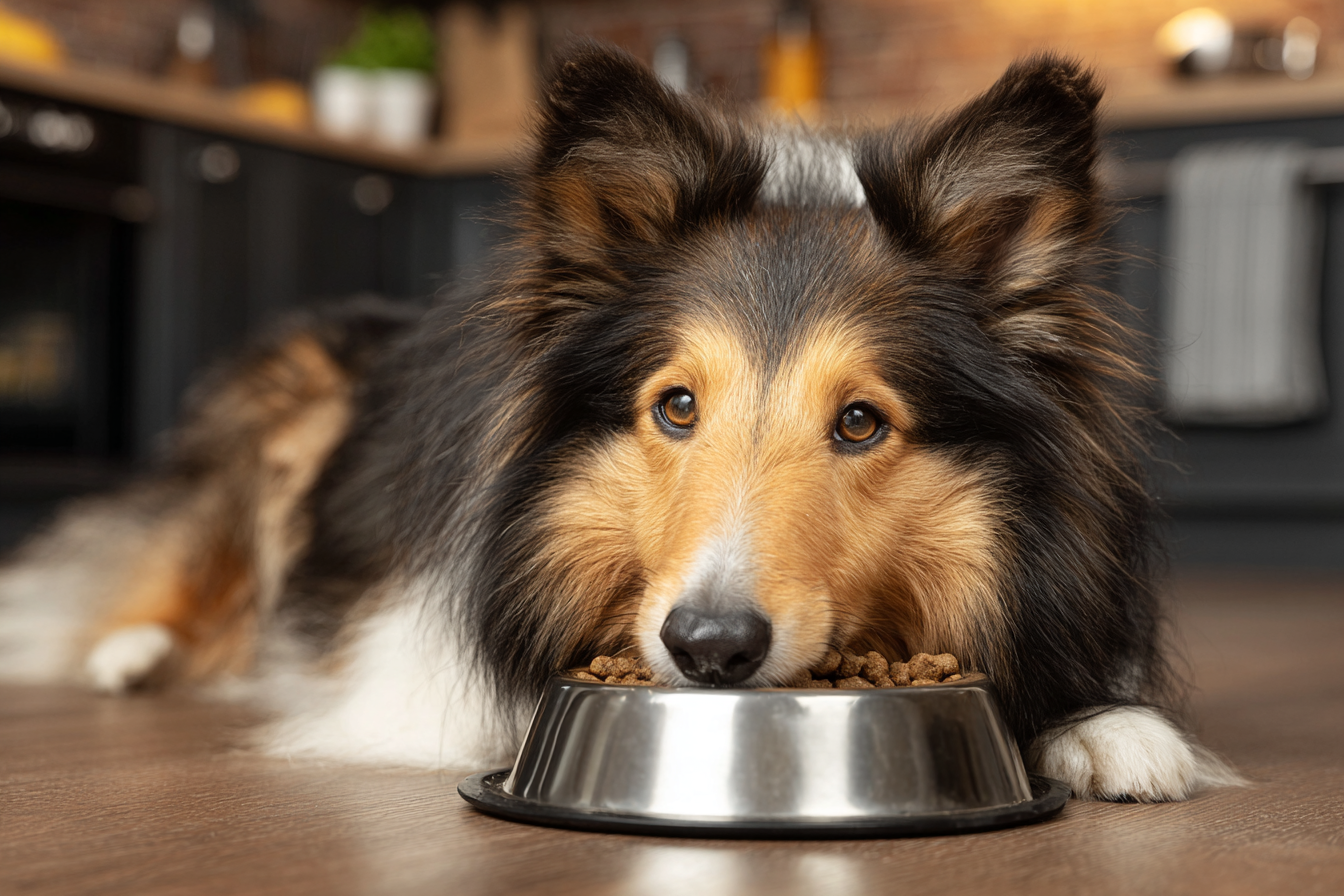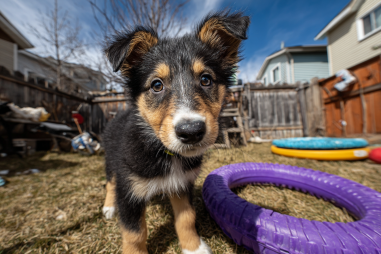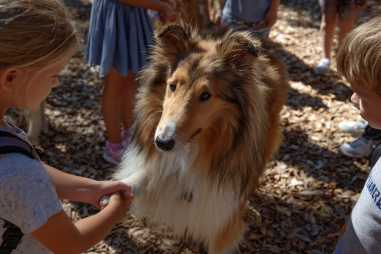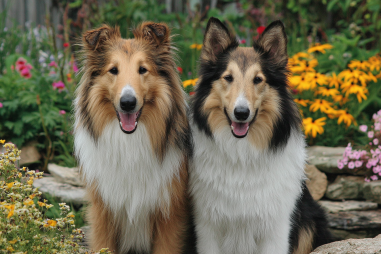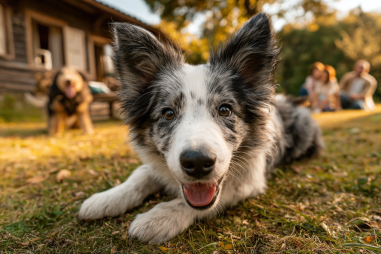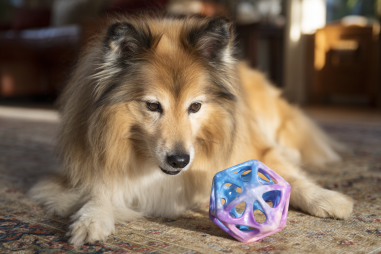Keeping your Collie happy, healthy, and full of energy starts with understanding their unique dietary needs. These intelligent and active dogs require a balanced diet that supports their dynamic lifestyle, promotes a shiny coat, strong muscles, and overall well-being. Whether you’re a seasoned Collie owner or considering adding one to your family, grasping the essentials of Collie diet and nutrition is key to ensuring a vibrant life for your four-legged companion.
Nutritional Needs of Collies
Collies are medium to large herding dogs known for their agility, stamina, and intelligence. Their nutritional needs reflect their active nature and lean body structure. A balanced diet for Collies should provide adequate protein, fats, carbohydrates, vitamins, and minerals.
Protein plays a crucial role in muscle maintenance and overall vitality. Collies benefit from high-quality animal proteins such as chicken, lamb, fish, and beef. These help repair tissues and support the energy necessary for herding and play.
Fats are essential as a concentrated energy source and also contribute to healthy skin and a glossy coat. Essential fatty acids like omega-3 and omega-6 should be part of their diet, potentially derived from fish oils or certain plant oils.
Carbohydrates provide fiber and energy. Whole grains, sweet potatoes, and vegetables are excellent sources that contribute to digestive health without causing unnecessary weight gain.
Additionally, vitamins and minerals such as calcium, phosphorus, and antioxidants help support bone health, immune function, and cellular repair. A well-rounded diet that addresses these components will keep your Collie energized and thriving.
Best Types of Dog Food for Collies
Selecting the most appropriate dog food for your Collie can feel overwhelming given the variety on the market. Generally, Collies do well on both high-quality commercial kibble and premium wet foods, as long as they are well formulated to meet canine nutritional standards.
- Dry kibble: Convenient and often more affordable, kibble designed specifically for medium to large breeds or active dogs is ideal. Look for options that emphasize real meat sources, natural ingredients, and added nutrients like glucosamine for joint health.
- Wet food: This can be more hydrating and palatable, especially for picky eaters or older Collies with dental issues. It’s important to balance wet food with dry kibble to prevent dental problems unless your dog’s specific needs dictate otherwise.
- Raw or homemade diets: Some Collie owners prefer raw or freshly prepared meals tailored to their dog’s unique preferences and sensitivities. If choosing this route, consulting with a veterinary nutritionist is vital to ensure all nutritional bases are covered.
Always check the ingredient list for quality proteins at the top, avoid excessive fillers like corn or by-products, and choose foods with probiotics or fiber for gut health support.
Portion Control and Feeding Schedules
Feeding your Collie the correct portion size is just as important as the quality of the food itself. Overfeeding can lead to obesity, which stresses joints and leads to health complications, especially as Collies can be prone to hip dysplasia.
Generally, a healthy adult Collie weighing between 50 to 70 pounds may consume about 2.5 to 3.5 cups of quality dry dog food daily, divided into two meals. Puppies and highly active dogs may require more frequent or slightly larger feedings to support growth and energy use.
Establish a consistent feeding schedule to help regulate digestion and behavior. Feeding twice a day—morning and evening—is ideal for most Collies. For puppies, three to four smaller meals daily can prevent hypoglycemia and promote healthy development.
Supplements and Treats
While a balanced diet should provide most nutritional needs, certain supplements can benefit Collies, especially if recommended by your veterinarian.
- Omega-3 fatty acids: Support skin and coat health, and may reduce inflammation.
- Glucosamine and chondroitin: Help maintain strong joints, especially as your Collie ages or remains very active.
- Probiotics: Aid digestion and support a healthy gut microbiome.
- Multivitamins: Useful if your Collie’s diet lacks variety, but always consult a professional before adding these.
When offering treats, choose healthy, low-calorie options like carrot sticks, apple slices (without seeds), or specially formulated dog treats rich in nutrients. Avoid overfeeding treats to maintain a healthy weight balance.
Foods to Avoid
Some human foods can be toxic or harmful to Collies and should never be included in their diet. These include:
- Chocolate: Toxic even in small amounts.
- Grapes and raisins: Can cause kidney failure.
- Onions and garlic: May lead to anemia.
- Macadamia nuts: Cause weakness and tremors.
- Xylitol: A sweetener found in some gums and candies, highly poisonous to dogs.
- Excessive fatty or salty foods: Can upset digestion or cause pancreatitis.
Always check with your veterinarian before introducing any new human foods or treats into your Collie’s diet to avoid accidental poisoning or digestive distress.
Hydration Importance
Proper hydration is vital for your Collie’s health, supporting all bodily functions from digestion to temperature regulation. Active dogs, especially working or herding Collies, lose fluids quickly and need constant access to clean, fresh water.
Encourage your Collie to drink throughout the day, not just during meals. If your dog is reluctant to drink, adding a small amount of low-sodium broth or wet food can help entice them to hydrate more regularly. Monitor for signs of dehydration such as lethargy, dry gums, or loss of skin elasticity, and consult a vet if concerned.
Adjusting Diet for Age and Activity Level
Collies’ nutritional requirements change through the stages of life and according to their activity levels. Puppies require nutrient-dense food rich in protein, fat, and calcium to support their rapid growth and development. Feeding a high-quality puppy formula until they reach about one year of age is recommended.
Active adult Collies, especially those involved in agility, herding, or regular intense exercise, need higher calorie intake to meet energy demands. Foods higher in protein and fat help maintain stamina and muscle mass.
Senior Collies tend to slow down and may require fewer calories to prevent weight gain, but their diets should remain nutrient-rich and easy to digest. Older dogs often benefit from supplements for joint support and softer kibble or wet food to ease dental difficulties.
Always tailor your dog’s diet gradually based on their changing needs, and consult a vet for personalized advice.
Keeping Your Collie Vibrant and Healthy
Providing your Collie with optimal nutrition is one of the best ways to ensure they lead a joyful and energetic life. By focusing on high-quality, balanced meals, careful portioning, hydration, and thoughtful supplementation, you’ll support their physical health and mental sharpness.
Every Collie is unique, so keeping an eye on their weight, coat condition, and energy levels will help you fine-tune their diet as needed. With the right nutritional foundation, your intelligent and loving Collie will thrive by your side for many happy years.

